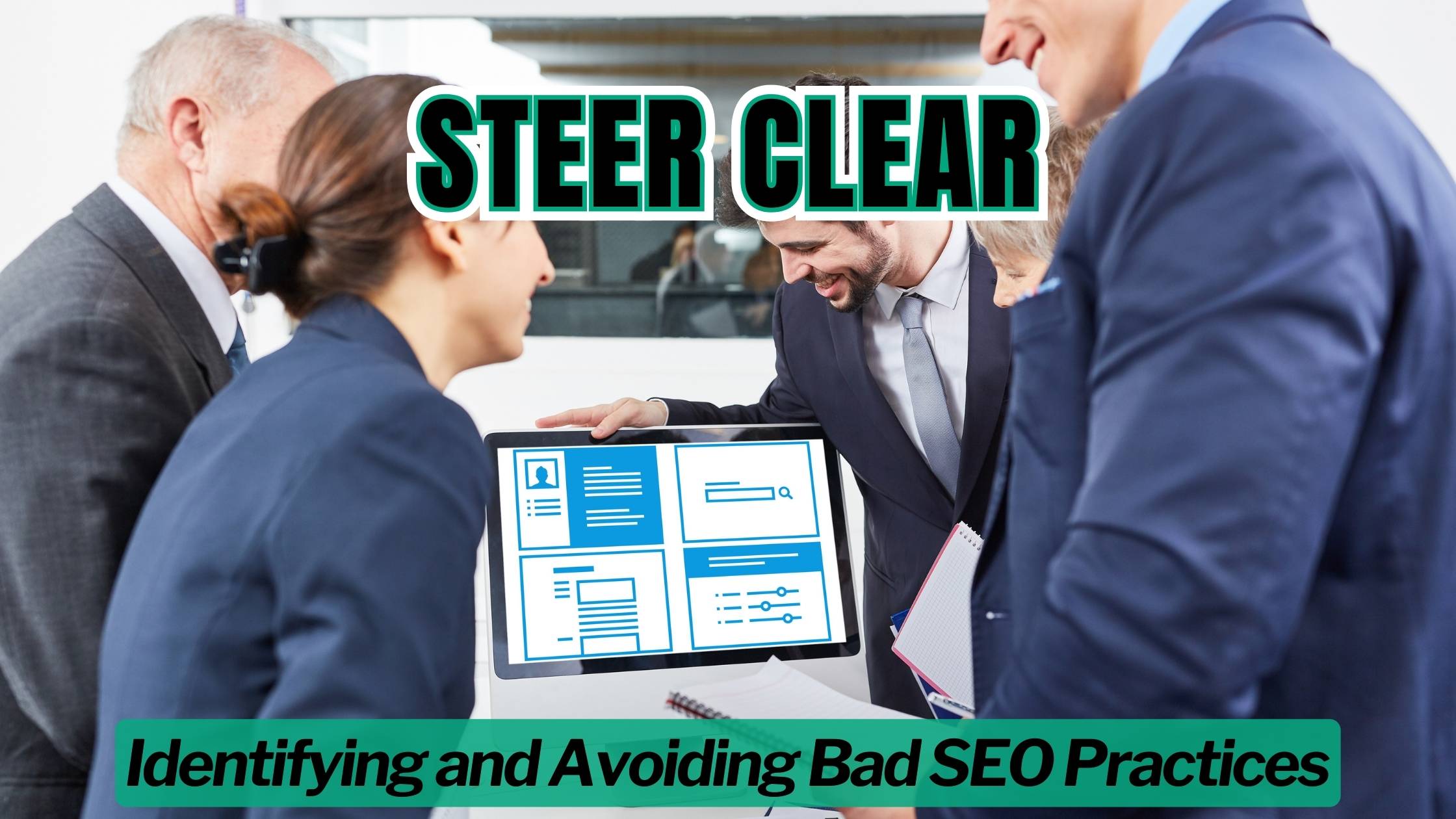Steer Clear: Identifying and Avoiding Bad SEO Practices
- Conversational Marketing Software SEO Software Affiliate Marketing Software Marketing Tools


Steer Clear: Identifying and Avoiding Bad SEO Practices
In the fast-paced world of digital marketing, search engine optimization (SEO) remains a cornerstone for enhancing online visibility and driving organic traffic to websites. However, not all SEO practices are created equal. While ethical and strategic SEO techniques can propel your website to the top of search engine results pages (SERPs), engaging in bad SEO practices can have detrimental effects on your website’s ranking and reputation. In this comprehensive guide, we’ll delve into the realm of bad SEO practices, identifying common pitfalls and providing actionable solutions to help you steer clear of them.
Understanding Bad SEO Practices
Before delving into the specifics of bad SEO practices, it’s essential to understand what constitutes unethical or harmful behavior in the realm of search engine optimization. Bad SEO practices encompass a wide range of techniques and strategies that violate search engine guidelines and compromise the integrity of your website’s ranking. From keyword stuffing and link schemes to content scraping and cloaking, engaging in these practices can result in penalties from search engines and damage to your website’s credibility.
1. Keyword Stuffing
Keyword stuffing involves the excessive and unnatural use of keywords within website content, meta tags, and anchor text in an attempt to manipulate search engine rankings. This practice not only diminishes the quality of content but also violates search engine guidelines, leading to penalties and decreased visibility in SERPs.
2. Link Schemes
Link schemes refer to practices aimed at artificially manipulating the number and quality of inbound links to a website, typically through the use of paid links, link exchanges, and link farms. Engaging in link schemes can result in severe penalties from search engines and undermine the credibility and trustworthiness of your website.
3. Content Scraping
Content scraping involves the unauthorized copying and republishing of content from other websites without proper attribution or permission. This practice not only violates copyright laws but also undermines the originality and uniqueness of your content, leading to potential penalties from search engines and legal repercussions.
Identifying and Avoiding Bad SEO Practices
Now that we’ve explored the nuances of bad SEO practices, let’s delve into actionable strategies to help you identify and avoid them effectively.
1. Focus on Quality Content
Instead of resorting to keyword stuffing or content scraping, prioritize the creation of high-quality, original content that provides value to your audience. Focus on relevance, readability, and engagement, and ensure that your content aligns with the search intent of your target audience.
2. Build Natural and Relevant Links
Avoid engaging in link schemes and focus on building natural and relevant links through ethical means such as guest blogging, influencer outreach, and content promotion. Prioritize quality over quantity, and ensure that your backlink profile reflects genuine relationships and endorsements from authoritative sources.
3. Stay Updated on Search Engine Guidelines
Keep abreast of the latest updates and guidelines from major search engines such as Google, Bing, and Yahoo, and ensure that your SEO practices align with their recommendations. Regularly monitor algorithm changes and industry trends to adapt your strategy accordingly and avoid falling afoul of search engine penalties.
Relevant SaaS Products for Ethical SEO Practices
1. SEMrush
SEMrush offers a comprehensive suite of SEO tools and features to help you conduct keyword research, track rankings, analyze competitors, and optimize your website for search engines effectively.
2. Moz Pro
Moz Pro provides actionable insights and recommendations for improving your website’s SEO performance, including site audits, rank tracking, backlink analysis, and keyword research tools.
3. Ahrefs
Ahrefs offers advanced SEO tools and data to help you uncover opportunities, analyze competitors, and optimize your website for search engines, including keyword research, site auditing, and content analysis features.
Conclusion: Navigating the Path to Ethical SEO Success
In conclusion, identifying and avoiding bad SEO practices is essential for maintaining the integrity and effectiveness of your SEO strategy. By focusing on quality content, building natural and relevant links, and staying updated on search engine guidelines, you can steer clear of common pitfalls and pave the way for ethical SEO success.
As you strive to optimize your website for search engines and avoid bad SEO practices, consider how Subscribed.FYI can enhance your SEO toolkit. With a centralized platform offering insights, comparisons, and management solutions for SaaS tools, Subscribed.FYI empowers you to make informed decisions about your technology stack and optimize your SEO efforts effectively.
Unlock exclusive member-only deals with Subscribed.FYI and access savings on premium SaaS products like SEMrush, Moz Pro, and Ahrefs. Sign up for free today and discover how Subscribed.FYI can elevate your SEO strategy and drive success for your business.
Relevant Links:








